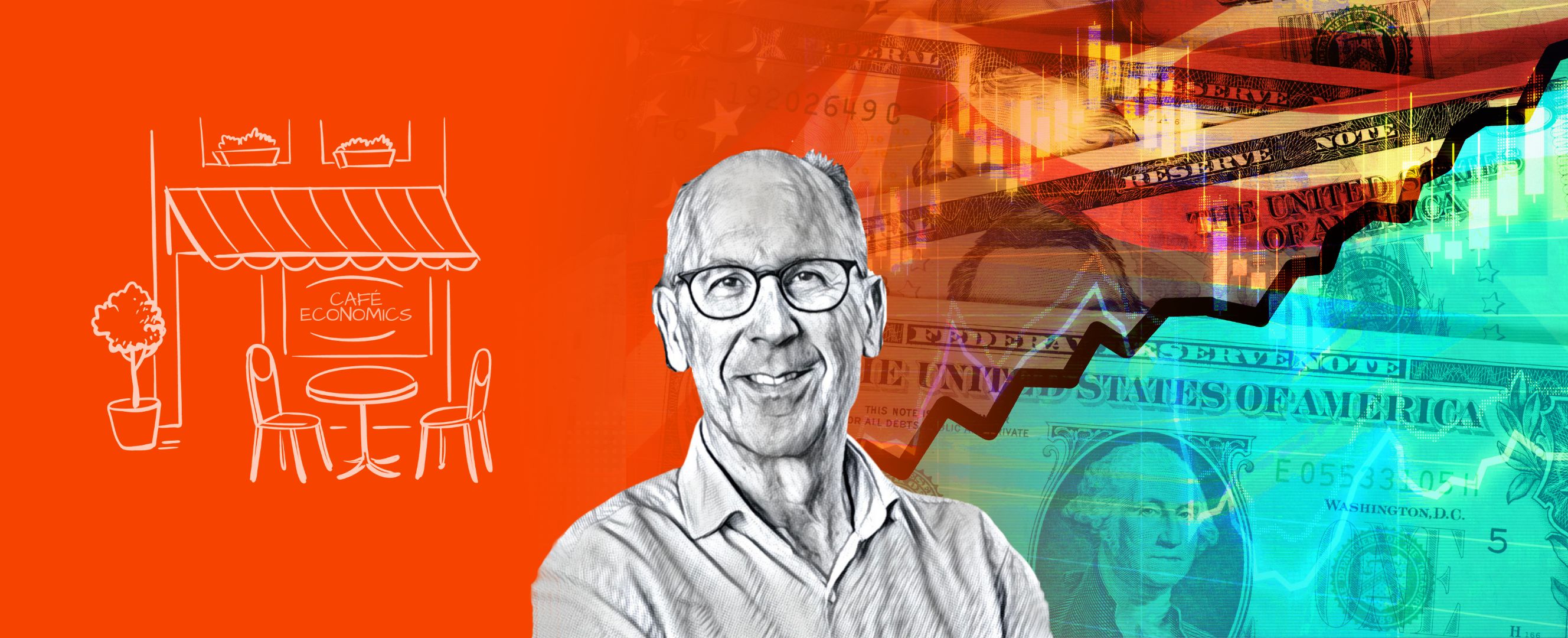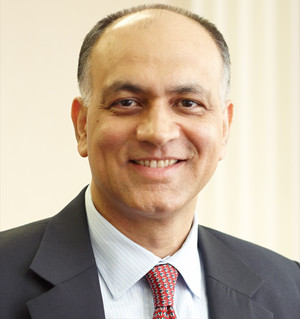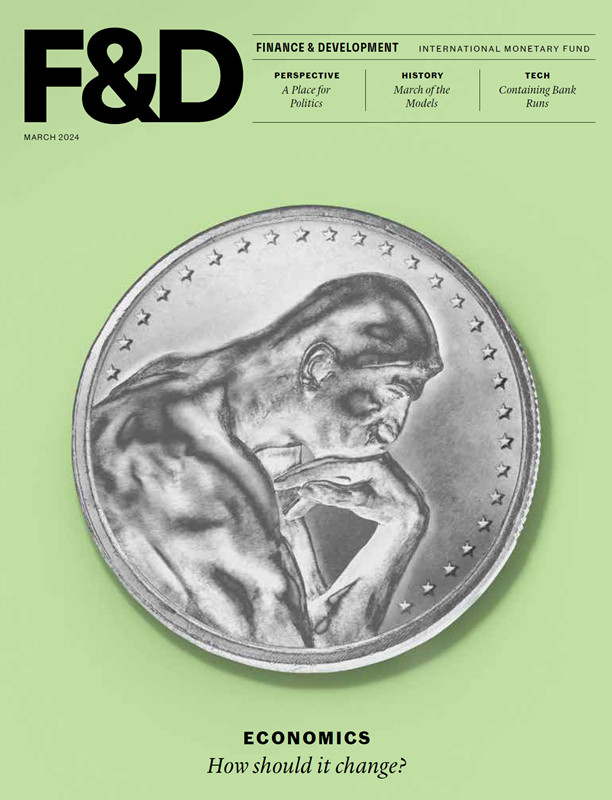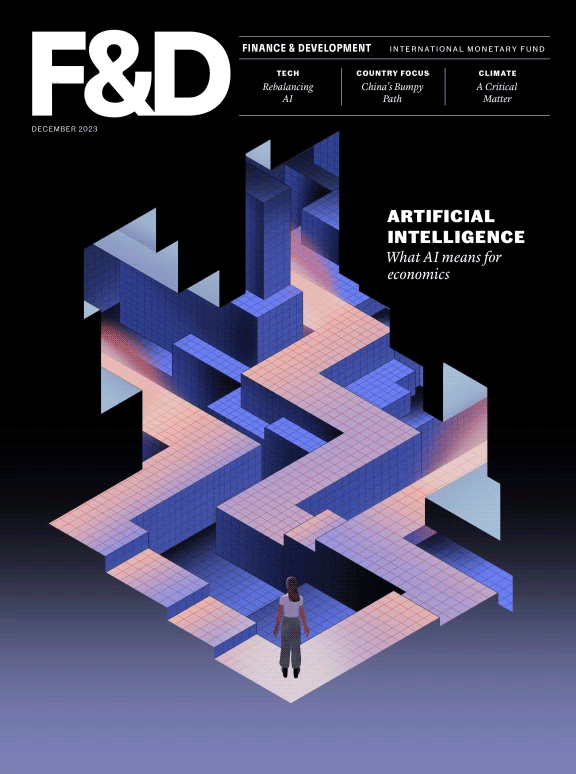February 14, 2023
US historian Gary Gerstle explains how globalization helped entrench neoliberalism while also bringing about its demise
Some moments in US history need decades to be fully grasped—they aren’t bound by the two-, four-, and six-year election cycles. Such periods, called “political orders” by US historian and Cambridge professor of American history Gary Gerstle, author of The Rise and Fall of the Neoliberal Order, are a new way of rethinking political time. The New Deal and the neoliberalism that followed were political orders that shaped US policy—and greatly influenced the global order—from the 1930s to the 2010s.
In a conversation with former IMF official Sunil Sharma, Gerstle discusses how the neoliberal order—committed to releasing capitalism from state-imposed constraints—failed in its promises, the contours of an emerging political order, and what this means for globalization.
SS: Let’s start with the basics—What is a political order?
GG: A political order is a way of rethinking political time. It arises when a political party wins not just one election but several, and develops an enduring appeal in American politics. A political order must be undergirded by a program of political economy that can plausibly claim to promote prosperity and opportunity and connect that program to a vision of the good life that appeals to voters.
A mark of a political order’s success is when it compels the opposition party—the Republicans during the New Deal order, the Democrats during the neoliberal order—to accept the dominant party’s political economy and vision of the good life as its own.
SS: To understand the rise of the neoliberal order, it’s important to understand the preceding New Deal order. What circumstances led to the New Deal?
GG: The New Deal order, lasting from the 1930s to the early 1970s, arose out of a moment in US history where capitalism was substantially unregulated by the state. The levels of unemployment, bankruptcies, poverty, and insecurity were such that many people concluded in the 1930s that capitalism, left to its own devices, was destructive—too prone to depressions and speculations to survive.
The simple but powerful idea of the Democrats’ New Deal order was that a strong interventionist state was necessary to regulate capitalism. This would both stabilize markets and redistribute the wealth via progressive taxation, support for strong unions, an expanded welfare state, and greater educational opportunity. The idea of states regulating markets in the public interest became so compelling that the Republicans, when taking back the presidency in 1952, didn’t roll back the major New Deal programs that had government intervening in the economy. This was a sign that a political order had triumphed.
SS: How did the neoliberal order emerge from the demise of the New Deal order?
GG: New political orders tend to emerge in periods of economic crisis. There was nothing new about neoliberal ideas in the 1970s. But they had been marginal. The economic crisis of the 1970s gave those ideas an opportunity to become mainstream. Keynesianism had dominated economic decision-making for decades; it was a tool kit central to the New Deal order. But those tools were no longer delivering economic prosperity. Unemployment and inflation had both spiked, plunging the economy into crisis. The Democrats were turned out of power, and Ronald Reagan transformed the Republican Party into a free market party. This free market orientation is best understood by the label “neoliberal,” which connotes injecting dynamism into a capitalist economy by freeing markets from state constraints.
The 1970s and 1980s marked the moment of this new political order’s ascent. It triumphed in the 1990s under the Democrat Bill Clinton. When he led the Democrats to power in 1993, he didn’t roll back the Reagan revolution of deregulation. I interpret his actions as signifying the triumph of a new political order—a neoliberal one.
SS: In your book, you discuss how globalization helped entrench the neoliberal order while also bringing about its demise. Can you explain?
GG: Neoliberalism promised that societies adopting free market practices would unlock the secrets to growth in ways that had been denied before. At its best, it imagines a world of peace, where people everywhere are trading, improving their livelihoods, realizing opportunities long denied to them.
Neoliberalism did allow capitalism to become global in ways it hadn’t been since before the First World War. Some of the wealth that had been concentrated in the West, for example, has been redistributed to places that had been denied that wealth. But neoliberalism overlooked the way in which this unleashing of economic power advantages elites who control the levers of capitalist development, deepening inequality. The justification is that economic growth will be so substantial that the difference between rich and poor won’t matter much because all boats will rise.
Neoliberalism’s greatest weakness—not only in the moral but also in the economic sense—was its inability to address economic inequality. Rather, it papered the matter over with promises of dramatic growth and then by coughing up easy credit when that growth failed to materialize.
After the global financial crisis, it was no longer possible to believe that all boats were rising. There were clearly losers as well as winners in the globalization struggle.
SS: How did the global financial crisis delegitimize neoliberalism?
GG: The global financial crisis fractured the neoliberal order, costing it the power and legitimacy that neoliberalism possessed in the 1990s and first decade of the 21st century. That’s not to say that neoliberal policies aren’t still around. But their authority began to be challenged in ways they weren’t during the heyday of the neoliberal order.
Quantitative easing during the financial crisis opened all kinds of possibilities in the US. That was the moment to engage in a massive infrastructural improvement project. President Obama wasn’t able to do that. He was in a sense the last of the neoliberal presidents, operating within the constraints of the neoliberal order. One of the principles of that order is that state intervention in the private economy must be strictly limited.
The course of history might have been quite different had there been a big infrastructure investment in 2009–10 to reboot the economy. The recovery would have flowed more quickly and directly to ordinary people. Had this kind of political leadership emerged sooner in the neoliberal order, the world might have been spared some of the political volatility that has rocked so many countries in the last 10 years.
SS: Given where we are, what are the contours of an emerging political order?
GG: We can see that the Biden administration has a plan for a new political order grounded in a political economy that looks more like the New Deal order than the neoliberal order, one that is trying to make some corrections for the errors of the neoliberal order.
Neoliberalism was mistaken in thinking that markets could be insulated completely from politics. Any set of economic policies, even the ones that encouraged the freest markets, has political and social consequences. For the economic realm to prosper, state involvement is needed at a level that was deemed unacceptable during the neoliberal era. There is a growing recognition that states must intervene in markets to address questions of economic security, opportunity, and welfare. Beneath some of the hubbub of American politics, a new political economy along these lines is indeed taking shape.
SS: How have the pandemic and the war in Ukraine affected the emergence of this new political order?
GG: They both have had a major impact. In the neoliberal heyday, the aim was to have output produced in the cheapest way. It didn’t matter where—as long as transportation was inexpensive and reliable. During the pandemic, goods couldn’t move, or they moved much more slowly and unpredictably. Neoliberalism also presumed a world of peace; few worried about a war obstructing international trade. That world vanished with Russia’s attack on Ukraine and the threats that China is making toward Taiwan. Governments now ask, What goods and services are essential for national security? What resources must every nation have for ensuring that the core needs of its people are met?
Suddenly, it matters where semiconductor chips and pandemic protective gear are produced; so, too, does secure access to rare minerals to build batteries and to energy supplies that can’t be interrupted by war.
National security always has had an economic component to it. What does a nation have to do to make sure that it has what its economy needs? Once you enter that frame of mind, you’re not in a neoliberal world anymore, because now you’re privileging national security over market freedom. This kind of thinking—underway in virtually every nation right now—is profoundly recalibrating the relationship of states to markets, of politics to economics.
SS: What does this mean for the future of globalization?
GG: It doesn’t mean we stop thinking about globalization. It doesn’t mean that countries become islands with no connection to each other. It means a strategic globalization—a globalization where nations can manage the flow of capital, commodities, energy, goods, and supply chains under adverse circumstances.
This points us away from free trade and financial flows, which was the model of globalization under a neoliberal world, and points more in the direction of managed trade and finance for the sake of some national or public interest.
This interview has been edited for length and clarity.
Opinions expressed in articles and other materials are those of the authors; they do not necessarily reflect IMF policy.









